“How could you have been so stupid? You’re a Beatle, boy, a Beatle. Your face is in every damn corner of the planet”: The embarrassing blunder that caused Paul McCartney to be jailed for nine days
The Beatles’ legend was detained upon entering Japan at the outset of a week-long tour, and he only had himself to blame
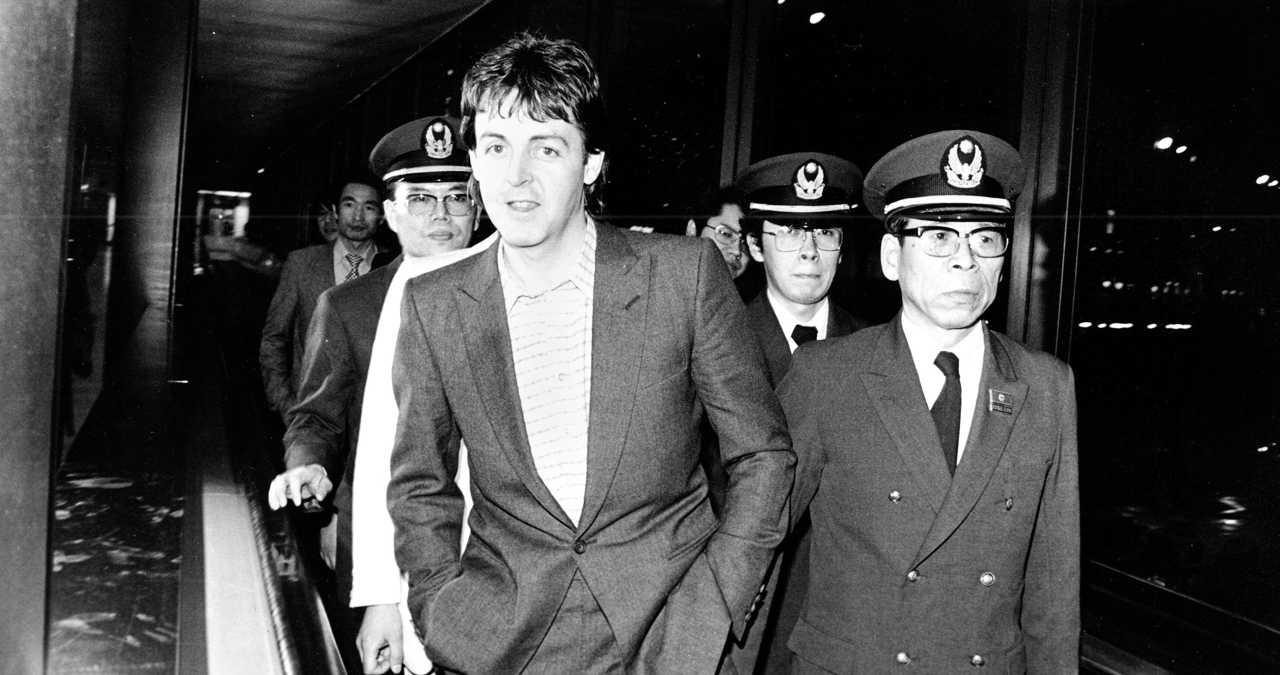
“What goes on tour, stays on tour” goes the old adage, yet for Paul McCartney on January 16th 1980, some secret ‘sustenance’ for Wings' long-anticipated Japanese tour became global news as the beloved ex-Beatle was locked up for a staggering nine days when a sizeable bag of marijuana was found on his possession.
To confound matters even further, Paul’s 7.7 ounce (219 gram) bag of fresh Hawaiian cannabis wasn’t even hidden. It had been naively stuffed within within his carry-on luggage alongside clothes and other essentials. Seemingly, without a hint of subtlety.
As Paul and his wife (and bandmate) Linda passed through security at Tokyo’s Narita International Airport, a diligent customs officer opted to be as thorough with his screening of the incoming music legend as he had been with the rest of the new arrivals.
After all, Paul had form.
Having been arrested in Sweden in 1972 and at his home in Scotland the same year for pot-related offences (possessing it, and growing it respectively), simply getting permission to come to the hyper-stringent Japan had been something of a legal hoop-jump, as the country’s rigid laws had zero tolerance for drugs of any sort.
But, after finally being granted the long-sought work visas (which had previously put pay to a mooted 1975 tour of the country), eleven dates were now on the calendars of delighted Asian fans.
This tour was set to take in premiere venues of Osaka, Nagoya and Tokyo, with the latter featuring a return to the Nippon Budokan where, over a decade before (and in a previous musical outfit) Paul had previously put on a memorable show alongside his bandmates John Lennon, George Harrison and Ringo Starr. A time when the entire world was gripped by Beatlemania.
But now things were quite different.
Unzipping the suitcase, the customs officer was aghast to find the not-even-slightly concealed bag of marijuana, which had a street value of 600,000 yen.
There was a tense moment when Paul and the officer met each others’ eyes.
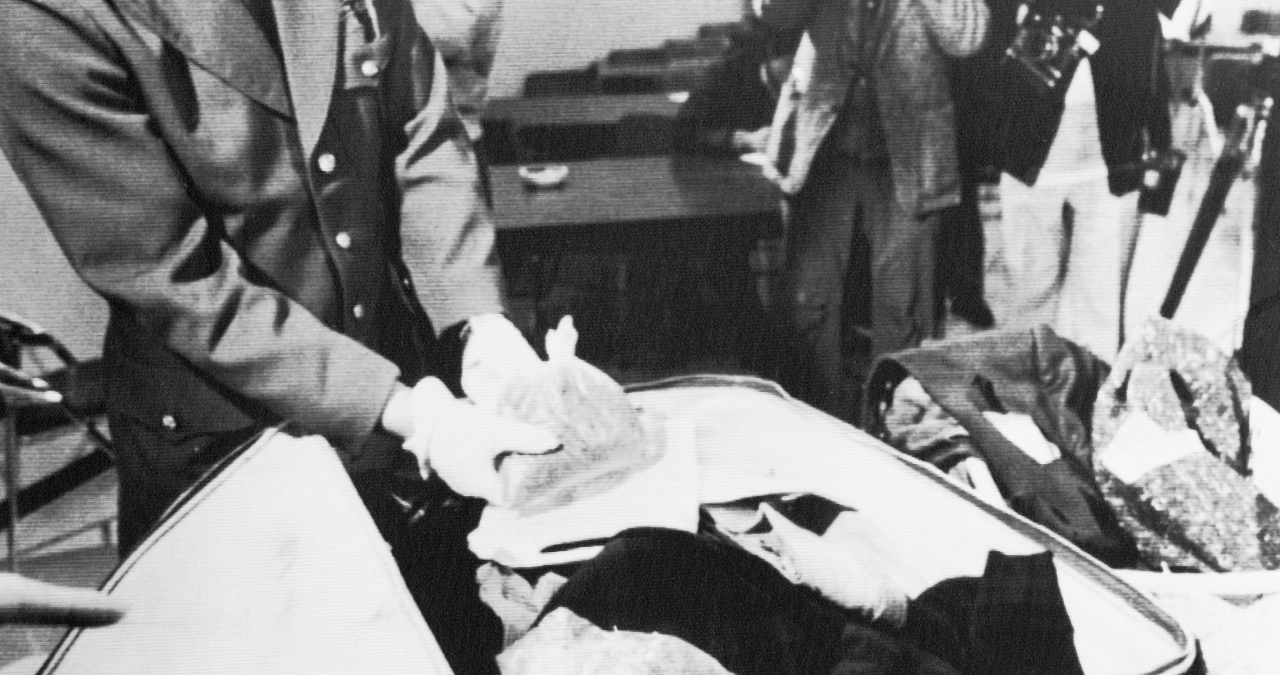
“I didn’t try to hide it. I had just come from America and still had the American attitude that marijuana isn’t that bad. I didn’t realise just how strict the Japanese attitude is,” McCartney was quoted as saying in Performing Songwriter.
The typically laid-back McCartney stated much later that the customs officer appeared more embarrassed than he was. All that changed, however, when Paul was promptly seized. The Narcotics Control Bureau (NCB) was summoned, and McCartney was led away in handcuffs.
The next few moments were a bit of a whirlwind, with the trailing media capturing the ex-Beatle’s handcuffing and removal from the airport.
Linda was aghast, Paul - not used to such heavy-handed treatment - was flabbergasted, and the authorities simply couldn’t believe this western musician’s outright audacity.
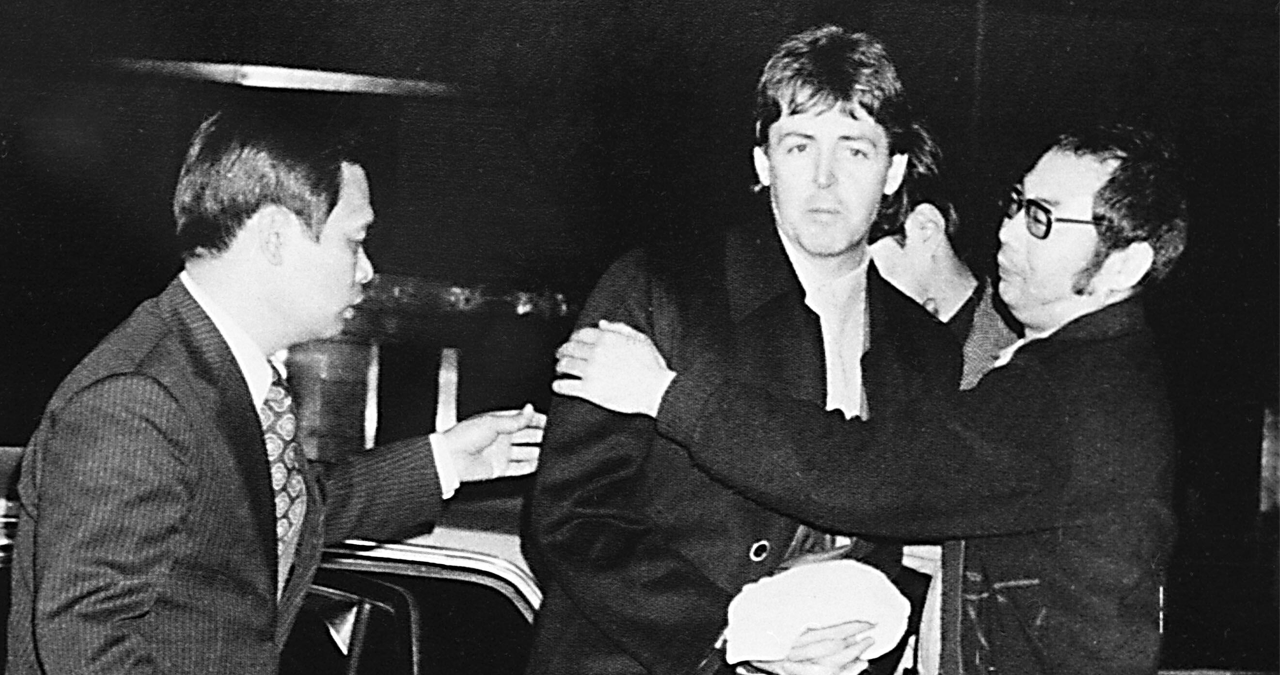
Rock photographer Bob Gruen was similarly astounded at Paul’s flagrant disregard for Japanese law. He recalled a conversation between McCartney and former songwriting partner John Lennon at Lennon’s Dakota home back in 1975 when Paul was seemingly really eager for Wings to negotiate their way over to Japan. “Paul was saying how much he was really looking [forward] to going back, and that's why I was really surprised when he did get permission to go back that he went back with bag of pot - right on top the suitcase, of good Hawaiian pot. I remember asking John one time, actually, like, 'How could he do that?' - and John just said, 'Well, as a Beatle he just never expected that anybody would ever open his bag. It just never happened.’”
Back to Tokyo, and Paul was bundled into a car and driven to the Drug Supervisory Center for interrogation. There, officers of the NCB questioned the rockstar on just why he had the illegal substance so blatantly within his baggage.
Unable to come up with a satisfactory answer, McCartney was escorted to a nearby detention centre to await further questioning.
Ostensibly a prison, Paul was housed within a four-by-eight cell while he awaited possible sentencing. He was potentially looking at years of jail time as well as a bit of strenuous hard labour.
Within a few hours, Paul had found himself stripped of the luxuries of superstardom.
Want all the hottest music and gear news, reviews, deals, features and more, direct to your inbox? Sign up here.
Here, he was ‘Inmate #22’, and clad in the prison garb of various other wrongdoers (and alleged wrongdoers) within the detention centre's four walls.
We can’t help but wonder if he muttered the verse lyrics of Band on the Run while he bided his time.
“My first night was the worst,” recalled Paul. “I couldn’t sleep. I was frightened about the possibility of not seeing my family for years.”
It wasn’t the best start to the tour, which, the next day was promptly cancelled. With almost 100,000 tickets already sold for the scheduled dates, the loss would haemorrhage 100 million yen.
A devastating blow, but one which was dwarfed by the very real possibility of Paul McCartney being held within a Japanese prison for the best part of a decade. An unexpected chapter in the former Beatle's narrative to be sure.
Naturally, the management team were hurriedly making contact with local authorities, trying to negotiate release. It was proving trickier than anticipated, as the rulebook-playing lawmakers were not playing ball.
The British Vice-Consul came back with ominous news. He visited Paul to share that he could be looking at up to eight years behind bars, with seven years of hard labour as part of his sentence.
Linda was livid. “Paul is now in some kind of detention place and I have not been allowed to see him,” she told the press. "As soon as they get someone nice like Paul, they seem to make a field day of it. I’ll never come back to Japan again. It’s my first trip and my last!”
In the detention centre though, Paul was finding, much to his own surprise, that he was settling in quite well.
He soon became a popular prisoner with guards and other inmates alike. Many of whom surely double-taked when they noticed the remarkable likeness Inmate #22 had for one of the Beatles.
“After a couple of days of terror, where you don’t know anything, you start to get a bit of an idea of it,” Paul recalled in an interview. “You start to get a little bit indoctrinated. It’s like [the film] The Great Escape. You start to play games and thing ‘I’ve got to keep sane here.'”
Six days into Paul’s new life behind bars, Linda was finally allowed to visit her husband. She brought with her a collection of books, clothes (and sandwiches).
As she left, Paul was forlorn. Shortly afterwards, he calmly resumed getting on with his simple, daily routine of exercising, reading and getting to know the other inmates. It was almost as if his other, far-fetched real life was a delusional dream.
But, by the eighth day, Paul’s managerial and legal team managed to negotiate a lenient resolution to his predicament.
Paul would be released - and hastily deported straight back to England.
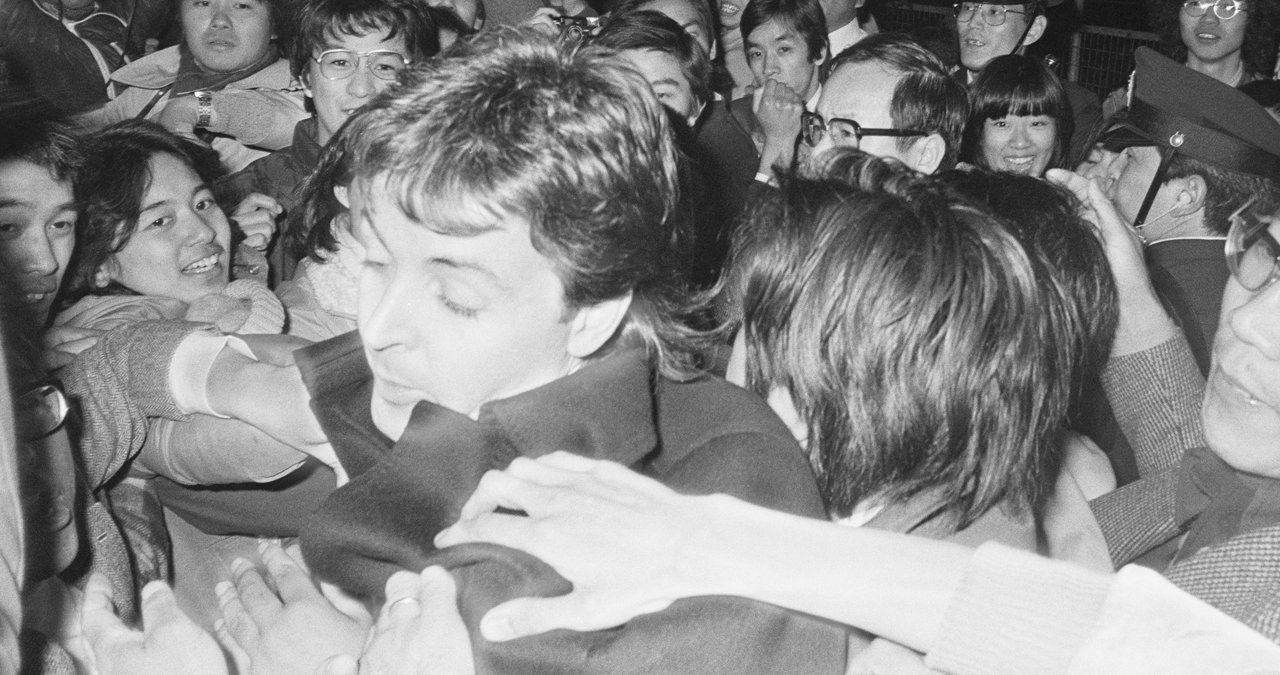
Driven to the airport, Paul was undoubtedly relieved. But, his mistake had cost his much-maligned Japanese fan contingent the long-promised tour. They were understandably gutted.
With Paul’s overt rule-breaking, he’d all but justified the authorities’ reluctance to let him into the country.
Meagre recompense then, when McCartney toted an acoustic guitar and played a medley of songs for the assembled fans and media in the departure lounge.
Wings would never tour again, with McCartney becoming a confirmed solo act once co-founder Denny Laine announced his departure from the band in April of the following year.
Reflecting on this disastrous moment, and what would likely have been Wings’ final tour, McCartney remained embarrassed about how things played out, and very cognisant of his own stupidity.
He recalled in 2000 documentary Wingspan that, “Looking back on it from this perspective, I can't believe I did it. It's wacky, y'know. [When] the guy in customs was opening my suitcase and pulling out not a small amount - the guy is pulling out, it's a huge amount of it - I do not know what was going through my head, tell you the truth, and it makes me go cold.”
However, in later decades, Japan warmly welcomed the Beatles’ legend back with open arms. First in 1990 for a solo tour and then five more times over subsequent years.
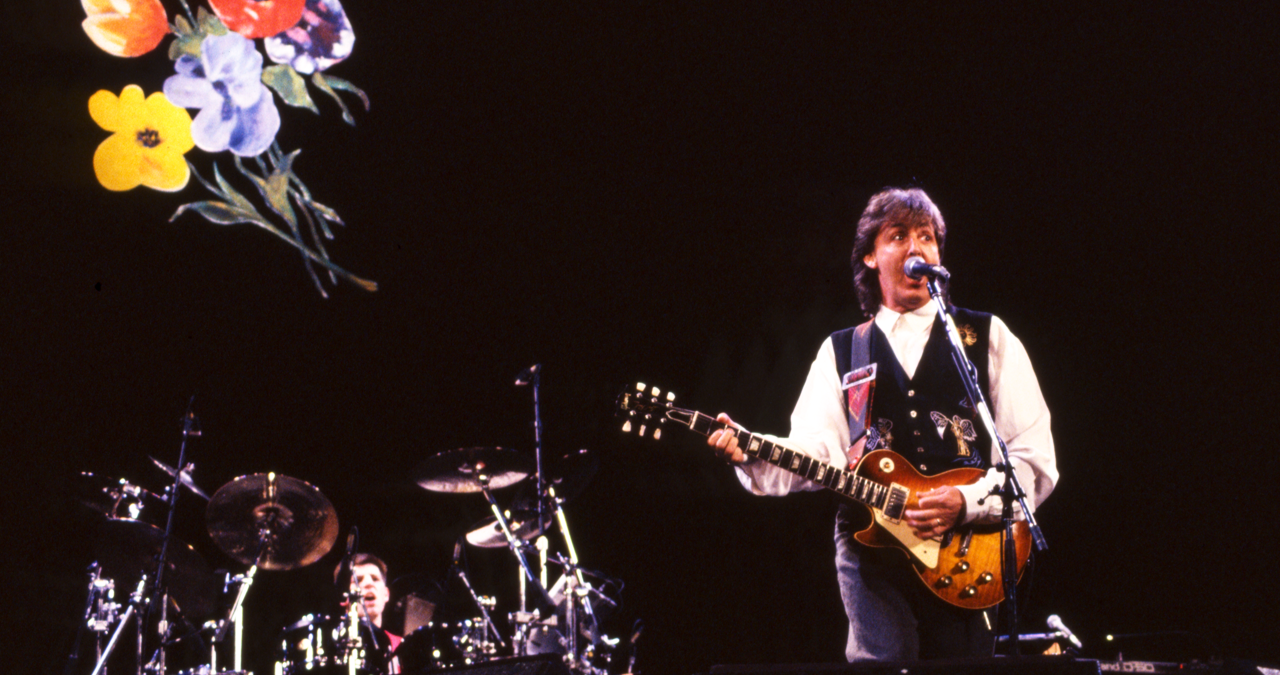
For John Lennon, who was tragically entering a year which would culminate in his horrific assassination, concern for his friend was dwarfed by the ridiculousness of the blunder.
Allegedly, Lennon told his housekeeper, "If he really needs weed, surely there's enough people who can carry it for him. You're a Beatle, boy, a Beatle. Your face is in every damn corner of the planet. How could you have been so stupid."
“People have put it to me over the years that I was framed,” Paul recalled in Wingspan. “Which, actually makes more sense to me as time goes on. But I don’t think I was. I think I was just stupid. And I paid the penalty.”

I'm Andy, the Music-Making Ed here at MusicRadar. My work explores both the inner-workings of how music is made, and frequently digs into the history and development of popular music.
Previously the editor of Computer Music, my career has included editing MusicTech magazine and website and writing about music-making and listening for titles such as NME, Classic Pop, Audio Media International, Guitar.com and Uncut.
When I'm not writing about music, I'm making it. I release tracks under the name ALP.
You must confirm your public display name before commenting
Please logout and then login again, you will then be prompted to enter your display name.
